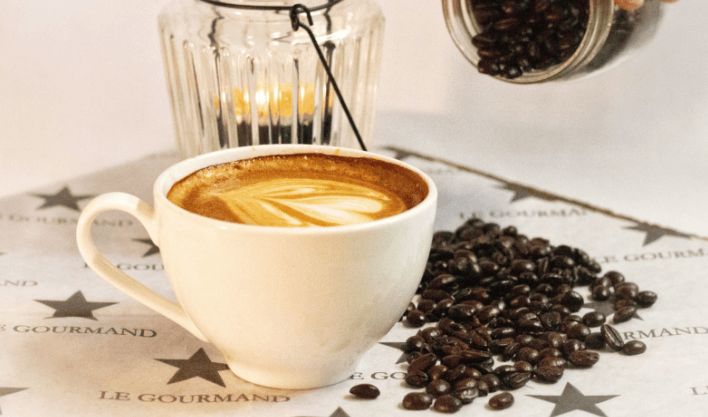What Is Specialty Coffee?

Specialty coffee is a product that undergoes stringent quality control checks at every stage of the production process. This starts from the cultivation of coffee beans, through harvesting, processing and roasting.
The end result is a distinctively delicious cup of coffee. It’s a sensory experience, with nuances in flavour that you won’t find in commodity coffee.
Origin
The quality of speciality coffee is not only determined by the beans themselves but also the entire supply chain and process. There are criteria for every stage of the production, including the grading, roasting and cupping stages to ensure that only high-quality coffee makes it to your cup. This allows for a higher level of taste and flavour and also ensures that farmers are paid fairly for their crop.
There are different definitions of what qualifies as a specialty coffee but the general consensus is that it is single-origin, with a score of 80 or above on the SCA scoring system and no more than 5 defects per 350g of milled beans. It’s also roasted in small batches, rather than large equipment as this gives the bean time to cook evenly and retain its flavour.
The quality of the ripe coffee cherries picked is also critical and these are often carefully inspected during harvesting. How a coffee is processed after it is harvested is also given much attention as the flavours and aromas of the bean are affected by this. From classic processes like natural and washed, to honey processing – where the coffee cherry is removed but the mucilage remains for four weeks to dry – there are a wide variety of techniques to choose from.
Roasting
When you visit a speciality coffee shop, you will find incredible beans from all over the world, brewed expertly by fully trained baristas. Unlike commodity coffees, which are mostly grown for bulk sales, these speciality coffees are usually traceable to their country of origin.
When the green bean is roasted, it undergoes some chemical transformations that alter its flavour. Specialty roasters will use a variety of techniques to control the temperature and duration of the roasting process, ensuring it is done just right. Roasting too long destroys volatile aroma and flavour compounds, resulting in a flat and unpalatable cup. Similarly, roasting too short can leave you with a bitter and burnt taste in your mouth.
The quality of a coffee is not just determined by its brewing process, but also the way it is cared for throughout the supply chain, from farm to cup. Coffee growers and roasters are constantly striving to produce a product that meets the SCA standards, which include a high quality of raw materials, an efficient production process and an exceptional brew.
During the SCA cupping process, coffee boffins sniff and sip the roasted beans to evaluate them, scoring them on 10 different principles, including fragrance/aroma, flavour, aftertaste, acidity, body, uniformity, balance, cleanliness of the cup and sweetness. If the coffee scores a high enough score – typically 80+ points – it is classed as a speciality coffee.
Brewing
In the coffee world, there are a lot of different brewing methods that can affect how a cup of coffee tastes. Speciality coffees tend to be brewed using precise tools and equipment, with the aim of bringing out the full range of flavour notes in the beans. It’s a complex process that is a big part of the reason why specialty coffee has such a reputation for being delicious.
Coffee lovers know the elation that comes with drinking high quality, well-made coffee. It’s a drink that brings out the best in you and makes you feel like fireworks have gone off in your mouth. On the other hand, it’s a real shame when you’ve had a coffee that isn’t up to scratch. That kind of flat, stale coffee is more deflated tyre than firework and it just doesn’t taste good.
This is why it’s important to buy your coffee from a specialist coffee shop that cares about how your cup of joe is prepared. The industry aims for quality in every stage of the coffee process, from sourcing through to brewing and tasting. The right roasters and the right brewing techniques can help bring out the most of your speciality coffee in Vaughan. Try experimenting with different brewing methods, from the classic cafetiere to the Moka Pot and Aeropress.
Taste
Aside from the fact that it’s better for the environment, speciality coffee also tastes better. This is largely down to the beans that are used – most specialty roasters use single-origin arabica (the quality cousin of bitter robusta). These grow at high altitudes, in microclimates, and are usually harvested at the very best time of year.
The beans are then roasted much more gently than the commodity coffee you’ll find in most chain cafés, so that they retain as much flavour as possible. This brings out a lot more fruity and sweet notes, as well as a more complex mouthfeel.
It’s worth noting that every coffee has its own unique flavour profile, and two coffees will never taste exactly the same. That’s why it’s good to try a variety of different types of coffee, as you’ll find that there is something for everyone.
The first coffee we tried was a medium roasted, and everyone agreed that it had little or no aroma, and the smell that there was reminded people of supermarket coffee. This was a disappointment, as all our testers really enjoyed the second coffee, which had a more powerful fruity taste. A few people found this overpowering, but the majority of people thought it was very pleasant and would buy this again. There was also a lower level of astringency in this cup, which is the feeling of dryness and roughness on the tongue caused by plant-based tannins.



